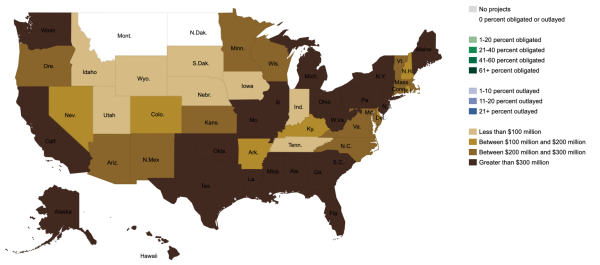For Latinos, It Pays to Be Born in the USA
Kevin Palomino on assignment for a story for Hispanic Heritage Month at Clips and Hips, a bilingual dance studio and hair salon in Oklahoma City. (Gaylord News/Pamela Ortega)
A chance conversation, an unsettling realization, and a pursuit for monetary equality; this is the story of Kevin Palomino and many others across the United States.
Palomino had been working as a supervisor at Mathis Brothers, a furniture store based in Oklahoma, for over a year. During a chat with his coworkers, he learned he was earning $13 compared to his coworkers’ $15. Palomino said this was the third job in which he had missed out on a raise.
According to the most recent Bureau of Labor Statistics data, in 2020 foreign-born Latinos only made 86.7 percent of what their U.S.-born counterparts made.
In other words, for every dollar Hispanics born in the U.S. made, Latinos born in other countries were paid 86.7 cents.
Palomino, a 20-year-old native of Ciudad Juarez, Mexico, was raised in the United States and legally works in the country thanks to Deferred Action for Childhood Arrivals, commonly known as DACA, an Obama-era program that temporarily waives deportations of undocumented immigrants who arrived in U.S. as children.
“I was frustrated, it was the third time it had happened,” Palomino said. “I was professional and calm, pulled my manager into the office and I asked why people were getting paid more than me.”
His boss said the system had overlooked him and then contacted Human Resources on his behalf.
The same thing happened to Palomino at two previous jobs. When he worked at Old Chicago, a restaurant chain, Palomino said he was paid $4 as a host, instead of the $4.50 his coworkers made. He approached his manager and said he was told nobody was getting raises because the restaurant chain was going bankrupt.
After Old Chicago, he helped open a Five Below, a discount store in south Oklahoma City. All employees started at $7.25 but were bumped up to $9 an hour. He later overheard some coworkers discussing their $10 hourly rate. He said he only received a raise after taking the discrepancy to his manager.
In both cases, Palomino disclosed he was a DACA recipient and said in both cases those who received raises were U.S. citizens.
“I don’t think I ever questioned it, I always thought it was a mistake. When it was happening, I thought it was a genuine mistake, but I think it’s not” he said.
An Oklahoma group hopes it can help other Latinos avoid similar wage concerns.
OKC Latino Young Professionals wants to equip Latinos with the right tools to navigate job searching, raises and salary negotiations. The group has built a sustainable network with over 680 Facebook members, 472 Instagram followers, in addition to a LinkedIn group.
Miriam Campos, a founder of the group who works in business development at Arvest Bank says she has been overlooked and underpaid at a job before. Now a citizen, Campos was born in Mexico and immigrated to the United States when she was 4.
“In my earlier stages, I had to figure out that it was okay for me to negotiate, I thought you would get promoted and that’s it. There isn’t the flexibility to ask for more” she said.
She’s determined to offer others training and advice. Campos says the group successfully helped a member negotiate a promotion and regularly hosts training sessions on doing online interviews.
Campos said it’s hard to discuss salaries, especially when those involved in the conversations are underpaid. She says some people who earn less than coworkers are often too embarrassed to admit it.
“I wanted to help others, not just be a great candidate with a great degree but go in there and get the opportunities,” said Campos.
Palomino now works for a television station in Oklahoma City. He was recently promoted from an assignment editor to reporter. In the future, he hopes to be more aware of how much he’s getting paid compared to his colleagues. And he plans to use the new Bureau of Labor Statistics data as a defense when asking for a raise.
Gaylord News is a reporting project of the University of Oklahoma Gaylord College of Journalism and Mass Communication. For more stories from Gaylord News visit GaylordNews.net.






